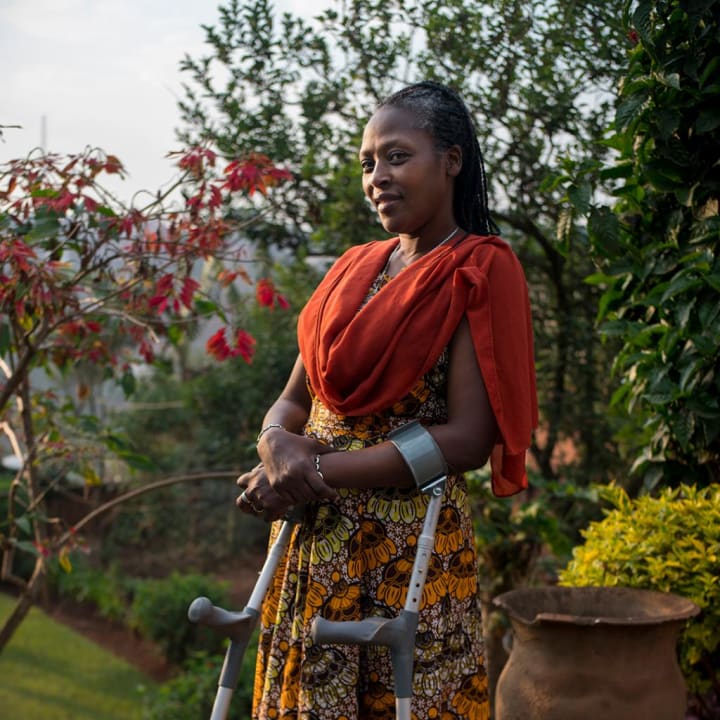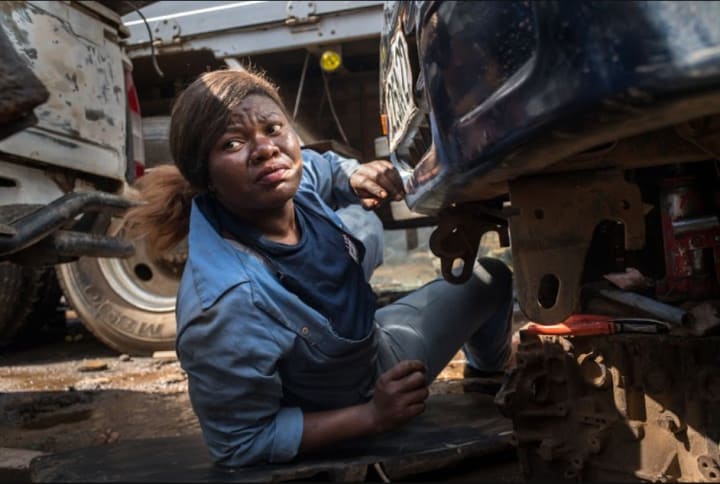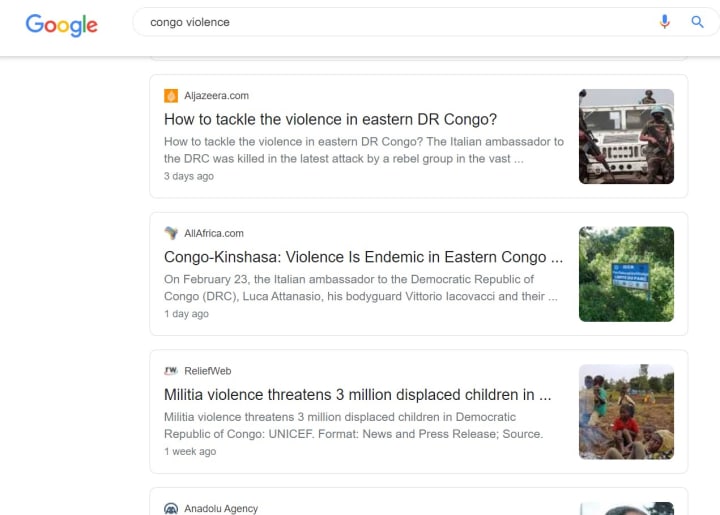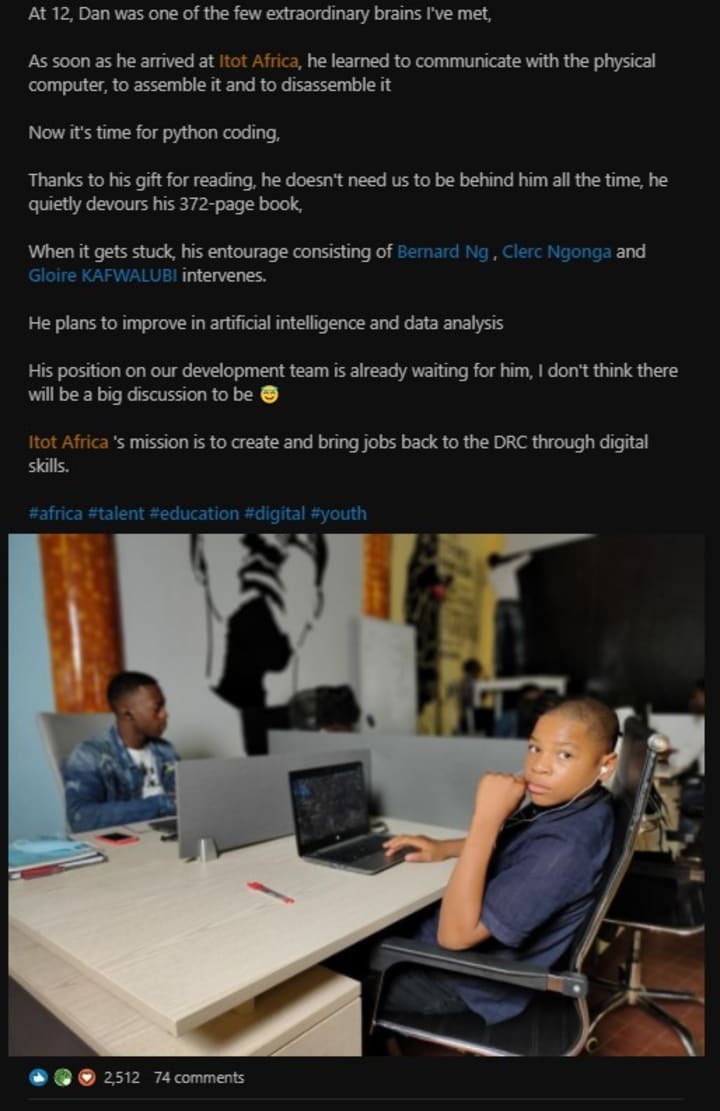
Let me paint you a scenario.
Imagine this:
Your life begins in a remote tribal region, tucked away in one of the poorest countries in the world.
At two years old, you fall into the jaws of disaster when you contract polio, a life-threatening disease, one that unravels a virus over your body. The virus soon takes its toll:
You slowly become paralysed and lose the muscular functions in your legs.
Now, imagine that modern vaccines are a luxury that your village can't afford. Imagine that the Right to Health is nothing more than a distant dream to you. You're unable to receive the medical care that you need. No, scratch that. You're unable to receive the medical care that you, and everyone else, deserves.
And to make things worse, you happen to live in a country where there is little to no disability awareness. As a matter of fact, your fellow countrymen think of disability as a curse.
They think of you as a curse.
The cards are stacked against you. But following in the footsteps of Maya Angelou, still, you rise above the ashes of their ignorance. You do not let yourself fall into despair. Better yet, you find a way to make your weakness your strength.
Imagine that...
... Well, you do not have to imagine, because that story's true. I stole that story from a chapter of Neema Namadamu's life. It's hard to capture Neema Namadamu's brilliance in words, but dear Reader, I promise I'll try:
Neema Namadamu is a survivor, a fighter, a feminist and a disabled rights activist. But, that's barely a scratch on the tip of the iceberg.

Her journey began in the humble beginnings of Itwombe, Congo. Because of her physical disability, her tribe deemed her unsuitable for marriage. However, because of that unsuitability, Neema was able to escape the housewife burdens that shackle most of the women in her society.
In her youth, Neema had a lot of time to herself and she spent that time studying; learning, sating her curiosity. Those long nights of studying would eventually pay off, propelling her to distant horizons:
She graduated from university. She built a powerful career from the ground up. Then, on one fateful day, Neema returned to her home village, determined to use the power of her education to light a flame of change in her society.
Today, Neema encourages hundreds - no, thousands of women in the Democratic Republic of Congo to build their own futures.
She advocates for peace, women's rights and disability rights in her homeland.
When brainstorming ideas for this article, Neema's story was the first one that popped to mind. What's groundbreaking about Neema is her defiance, her unwavering spirit and her infectious optimism for the future of her homeland.
When I read about Neema's story, it struck a chord with me. Mainly because I am a native-born Congolese like her, and I am also searching for ways to lend a helping hand to the communities in my homeland. But also because it's hard to not feel inspired by Neema's fortitude and resilience in the face of adversity.
Grab a cup of water, coffee or tea (whatever you prefer).
Sit back, relax and let me tell you more about this awesome woman.

I. A Warrior of Peace
16.36 million. As of December 2020, there are only 16.36 million internet users in the Democratic Republic of Congo.
At first glance, that number may seem substantial. Impressive, even. But in truth, 16 million is barely a scratch on Congo's population of 91 million people.
Furthermore, Neema estimates that the vast majority of those 16 million internet users are men, with women falling far behind. In 2012, Neema began a journey to fix that problem. On that year, she opened the Maman Shujaa Media Centre:
The Maman Shujaa Centre provides free digital literacy training to women and girls. Today, the centre is a safe space for those who want to ask; to learn, to discover more about the busy world rushing swirling around them.
In the West, we're a little privileged. Most of us can rely on the convenience and comfort of our digital technologies. The urgent answers we want lay behind the sleek glass screen of our laptops or iPhones.
Want to find out the weather forecast for Saturday? Open up Google. Browse a quick search. Job done. Carry on with your day.
Unfortunately, not everyone can afford such luxuries. That's particularly the case in Congo. Women in Congo typically face great barriers to access technology. Most of the women and girls who visit the centre are strangers to laptops, computers and smartphone, let alone the Internet.
Some visitors aren't even aware of the Internet's immense possibilities before stepping through the centre's front door.
But that is what makes Neema's centre groundbreaking:
Thanks to the centre, Neema is widening the horizons of these women. She is granting them a key to open the gates to a universe they may have never discovered. And I'm all for it!
Commenting on the impact of her centre, Neema Namadamu had this to say:
"How can you quantify having your understanding illuminated beyond your wildest imagination? When women come to the centre, they sit down at a computer in front of them and travel the world without leaving their seat. The Internet has opened up a world that they didn’t know existed. With the touch of their fingers they bring near that which is beyond their reach in this life."
These curious and driven women work cooperatively to support one another; connect, find answers and build futures where all the women in their country can have access to the opportunities that Neema had.
I'll share a story from one of the women. Princesse Malembro is a mechanic who attends classes at the centre after her shifts. In the classes, she uses Google Search to find articles or videos related to car repair to stay a step ahead of her colleagues:

Many other women have set off on incredible journeys after visiting the centre. Since the centre opened, over 1000 women have been trained by the centre. Something tells me that number will continue to skyrocket.
Neema Namadu's philosophy reminds me that although changing the world is an honourable goal, changing your community is just as honourable:
"I am not going to change the whole world," she says, "but what I am doing is to focus on my village, on my community. The reason I started my centre is to help people to know what the world looks like."
I am reminded of the suffering of my homeland, Congo, every time I switch on the news on TV. Stories of violence and death and chaos spread like wildfire - every day, every month, every year. Again and again:

I could fall into a rage about the greedy politicians who watch as the country burns to the ground.
I could worry about which President will win the 2023 elections. Will he/she be a just president or a corrupt one?
But no matter how angry or worried I get, those problems will still be there. Waiting. Looming.
So, rather than raging and worrying, my time would be better spent following in the footsteps of Neema. Like her, I can make small changes to help the communities in my homeland.
I can contribute to solving the little problems, one at a time, and then work upwards from there.
Whether I do that by helping a family to start a small farming business; teaching a cousin in Congo how to earn money writing online, supporting and promoting people/businesses who fight to improve the lives of Africans. Yes, the small steps matter, too.
The lesson from Neema Namadamu that I give to you is this:
Big changes start with small steps.
Follow more of Neema Namadamu's adventures on her website.

II. Warriors of Hope
When we look through the lens of history, it's clear to see that in the last twenty years, technology has evolved at a groundbreaking rate. Think about it.
Twenty years ago, you couldn't stream movies from Netflix. You couldn't rent an Airbnb or book Ubers from the comfort of your iPhone. Twenty years ago, there were no Amazon drone pilots. No SEO experts. No UX designer. No IOS App developers.
The world has changed a lot since then. The world is constantly moving fast, ever-evolving. The digital era is on the horizon, and it has led to steady progress in digital technology. ITOT Africa, a tech-savvy company, is harnessing the power of this technology and using it to help create jobs in Congo through digital skills.
I'll tell you more about ITOT Africa. But before I do that, I want to draw your attention to a statistic:
According to the IFC, 230 million jobs in Sub-Saharan Africa will require digital skills by 2030.
In Africa, digital skills are in high demand and ITOT Africa are helping to meet that demand.
Founded by Samy Mwamba, ITOT Africa "trains, builds and offers teams of software engineers and digital marketing specialists to companies of all sizes."
There are many stories of success from ITOT Africa. One story, in particular, tugs the corners of my mouth into a smile whenever I read about it. And that is the story of Dan, a boy who began training at ITOT Africa at only 12 years old:

Dan quickly learnt how to operate, assemble and disassemble computers from his training at ITOT.
Education can offer children a path to a promising future and a ladder out of poverty. However, in Congo, school education is a luxury most citizens can't afford. Primary school education is neither free nor compulsory.
Get a load of this:
In Congo, nearly 7 million children aged 5 to 17 are out of school.
So, it goes without saying, I feel over the moon whenever I see Congolese children receiving opportunities to learn and build their own futures.
Follow more of ITOT Africa's adventures on their website. (Note: If you are unfamiliar with French, you can translate the website to English)

I want to end on a Martin Luther King note. Reverend King Jr. once sent us these words:
"Darkness cannot drive out darkness; only light can do that."
Well, the light shines brightest in the dark. My homeland, Congo, is a place of contradictions. A place of light and darkness.
My homeland, Congo, is a place of contradictions. A place of light and darkness. In Congo, you'll find many stories of terror, violence and death. But in the ashes of despair, you'll also find many stories of inspiration.
Stories of unbroken optimists.
Stories of intelligent, hardworking medical school graduates driving taxis just to make ends meet - because they have no other choice.
Stories of women seeking to raise awareness about disabilities in a country where disabilities are seen as a curse.
The unbroken determination that I see from the people of my homeland is enough to make a cranky old man smile. It reminds me that what matters is not our strength to find hope when life is smooth sailing. What matters is our strength to find hope when the tides of life are ruthlessly crashing against us.
What matters is that we choose to be hopeful when we have all the reasons to be hopeless. Even a little light of hope can move mountains.
ITOT Africa reminds me of a quote from Martin Luther King Jr:
"Out of the mountain of despair, a stone of hope."
About the Creator
Aggee
Hi there. My name is Aggee.






Comments
There are no comments for this story
Be the first to respond and start the conversation.